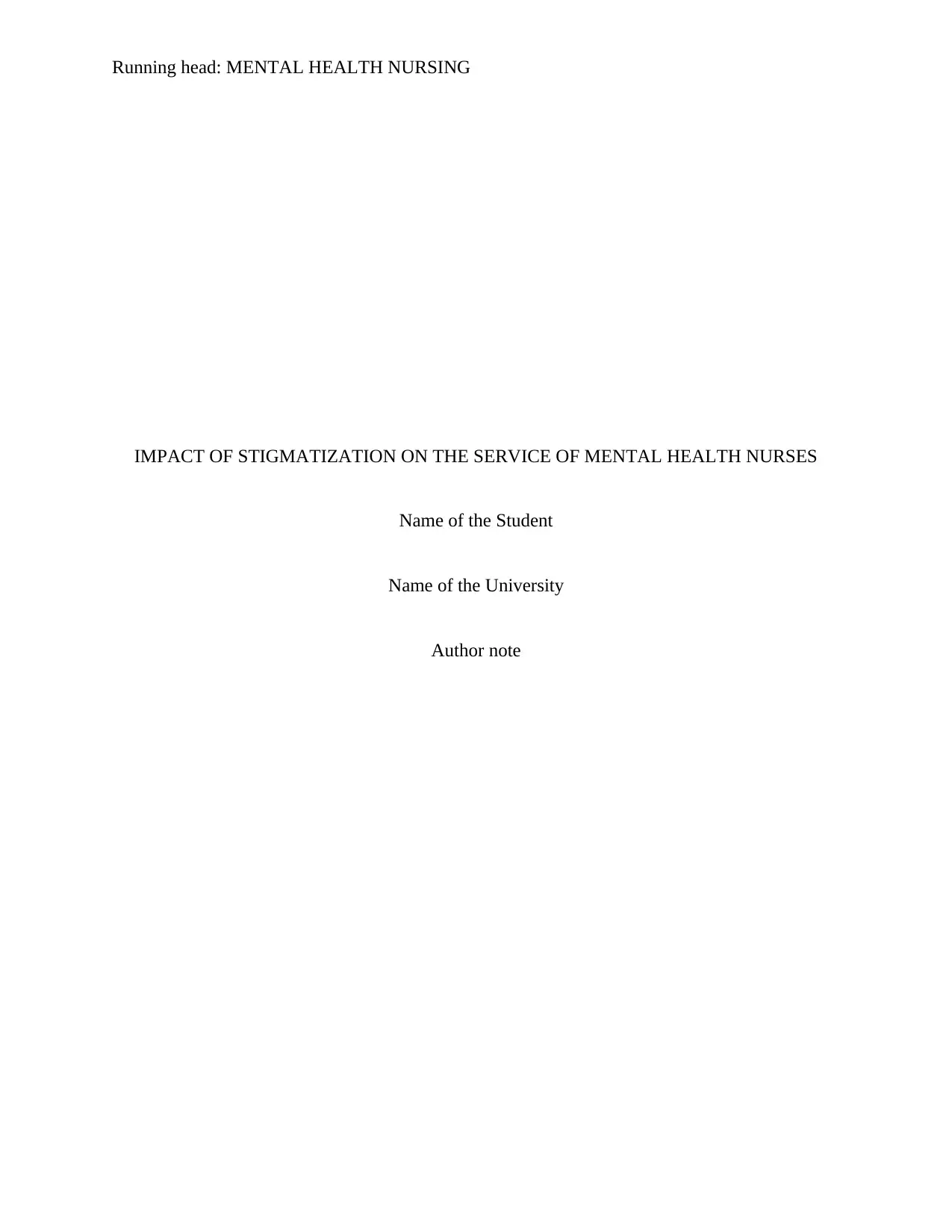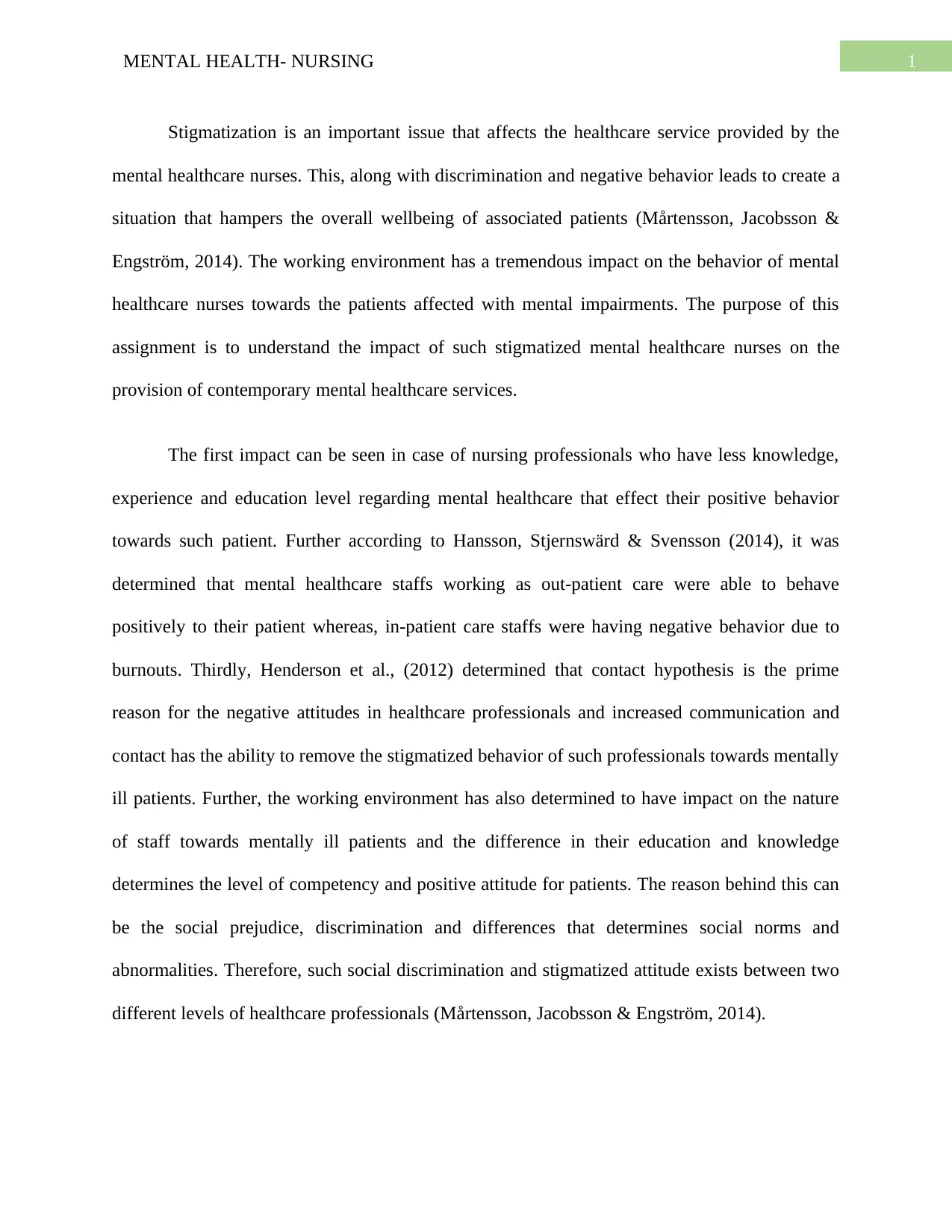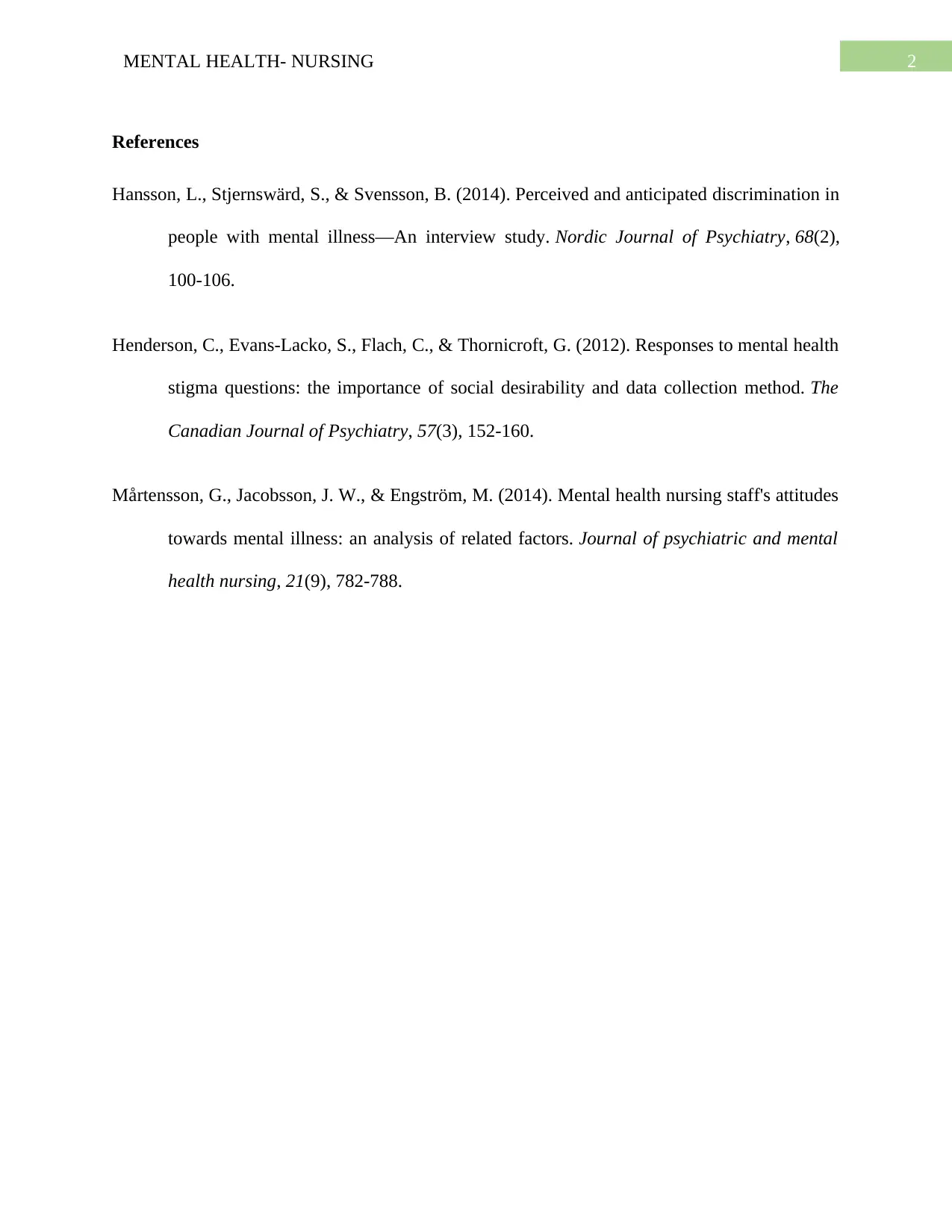Mental Health Nursing Report: Impact of Stigmatization on Healthcare
VerifiedAdded on 2021/04/17
|3
|475
|30
Report
AI Summary
This report examines the significant impact of stigmatization on mental health nursing services. It highlights how discrimination and negative attitudes among healthcare professionals, influenced by factors like education, experience, and the working environment, affect patient care. The report analyzes the behaviors of mental healthcare nurses, differentiating between inpatient and outpatient care settings, and explores the role of contact hypothesis in shaping attitudes towards mentally ill patients. It references key studies to underscore the importance of addressing social prejudice and promoting positive interactions to improve the quality of mental healthcare. The report concludes by emphasizing the need to understand the social discrimination and stigmatized attitudes within the healthcare system to enhance the overall wellbeing of patients.
1 out of 3










![[object Object]](/_next/static/media/star-bottom.7253800d.svg)